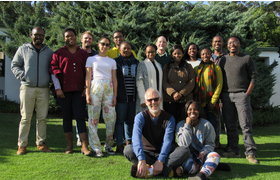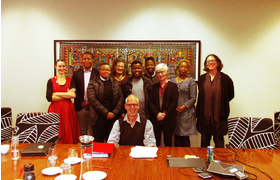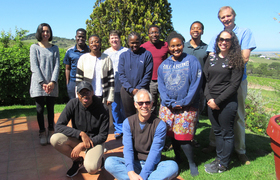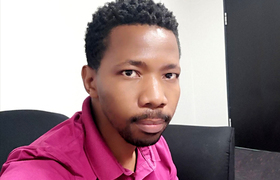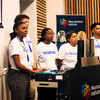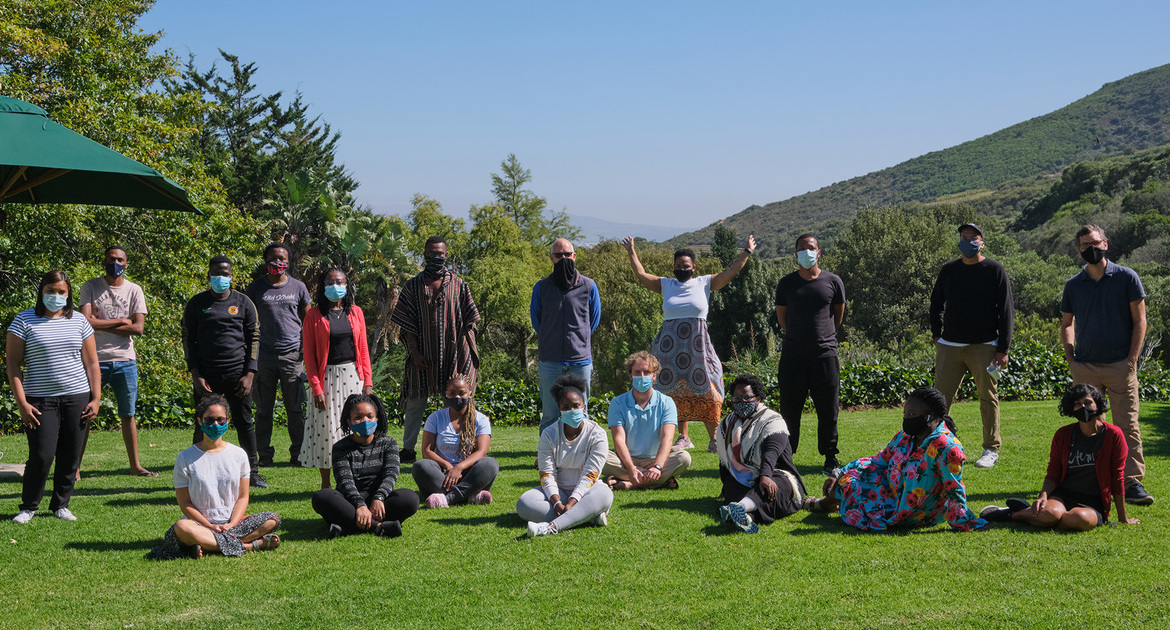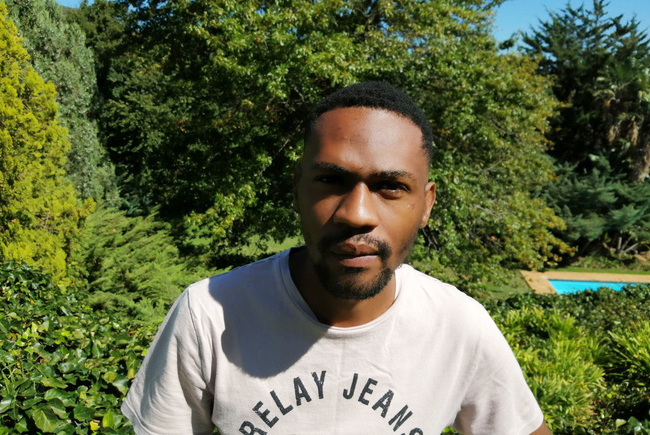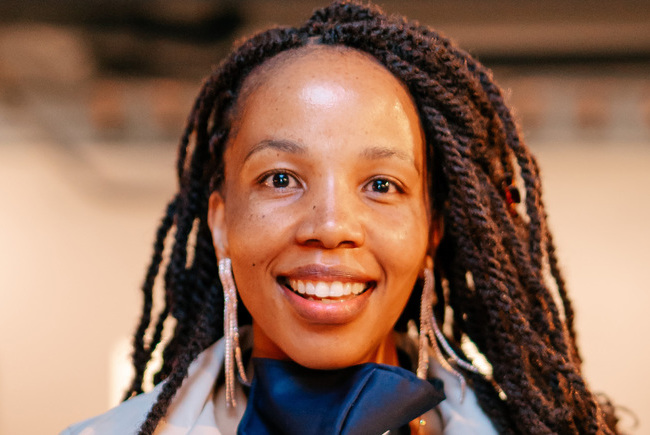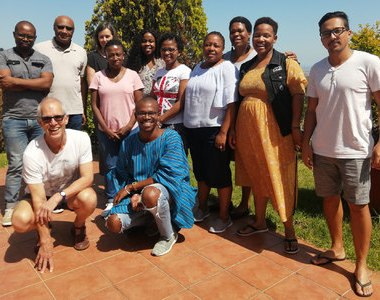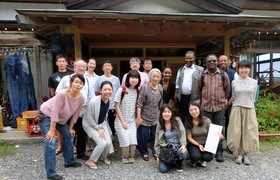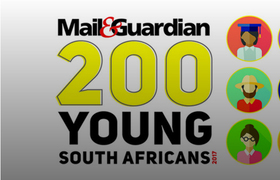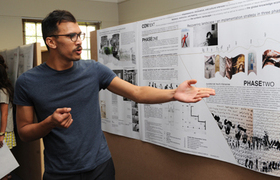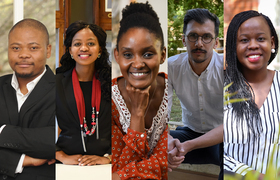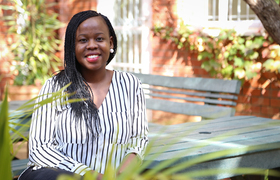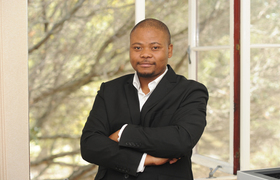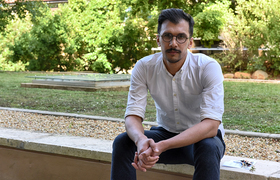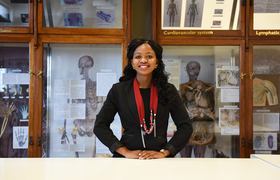Support for HoDs in complex environment
04 April 2019 | Story Helen Swingler. Photos Michael Hammond. Read time 3 min.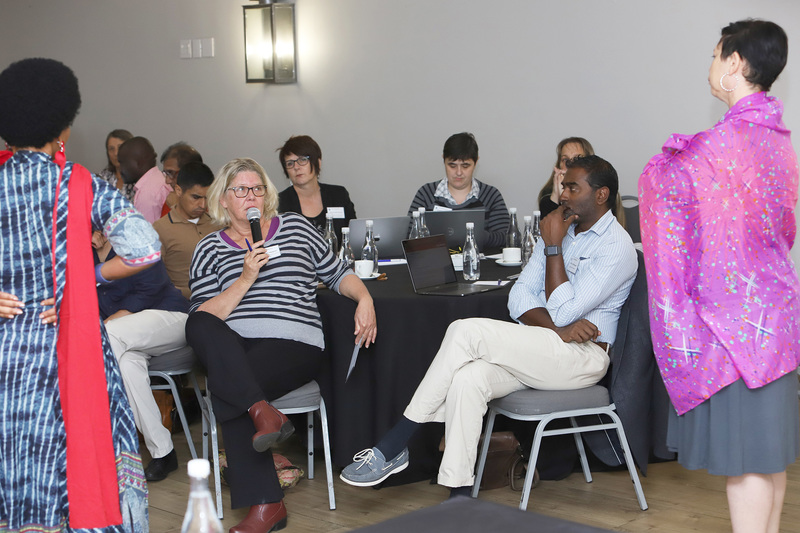
Leading and managing complexity took centre stage at the annual Academic Heads of Department (HoD) Workshop, hosted by the University of Cape Townʼs (UCT) Vice-Chancellor Professor Mamokgethi Phakeng at the River Club on 3 April.
The workshop followed a dinner the previous evening, attended by academic heads of department and their partners, at the Vineyard Hotel. The aim was to thank the partners for their support.
In her introduction, Phakeng said the workshop’s programme was based on the sharing of ideas. She urged the participants to “mix it up” and to engage with people at other tables to maximise the value of the meeting.
“We talk a lot about marginalisation and inclusivity, and as we as the leadership address people, we should create the first move,” she said, adding that the value of the workshop is to provide an opportunity for HoDs to share ideas.
Management’s aim, according to Phakeng, is to build continuity at the annual workshops in order to ensure that meaningful momentum is created around important issues.
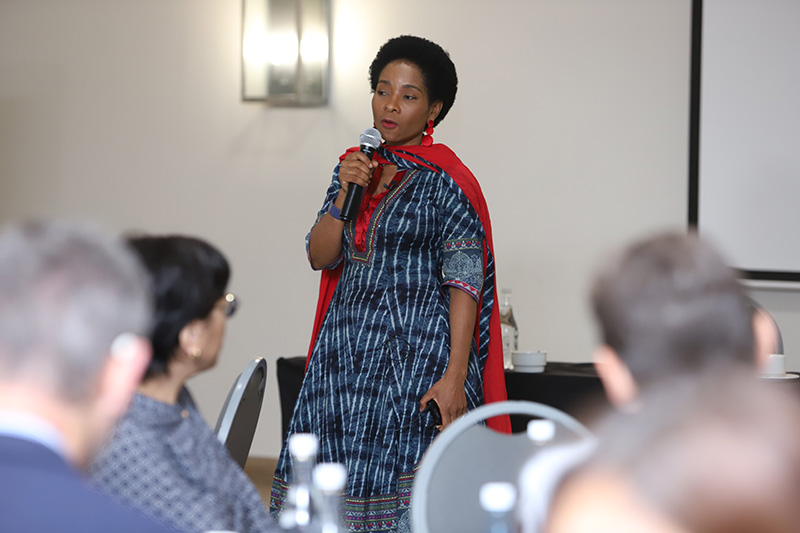
“I hope that at the end we can talk about what will be useful for future HoD workshops so that it’s not just an agenda developed by us, but something that will contribute to you being an effective HoD.”
Formal support programme
She added there are plans to roll out a formal support programme for HoDs and deans.
First on the programme was input from the task teams formed in 2018, “a gauge of what work has been done [and] how far it has progressed”.
“We talk a lot about marginalisation and inclusivity, and as we as the leadership address people, we should create the first move.”
“That’s important: to see whether we’ve made progress, or not”, Phakeng said.
The workshop addressed sexual harassment in the context of support for HoDs in managing complexity in the workplace. This took the form of a case study, presented by Deputy Vice-Chancellor Professor Loretta Feris, and a scenario presentation by the Office for Inclusivity and Change’s (OIC) Rashieda Khan and Francois Botha.
Developing the topic, Zaheer Ally and Maney Stellenboom discussed the role of the Human Resources (HR) department in helping HoDs manage such incidents.
Further discussion around support was presented by Mpho Ngoepe, also from HR, who looked at organisational development needs and analysis.
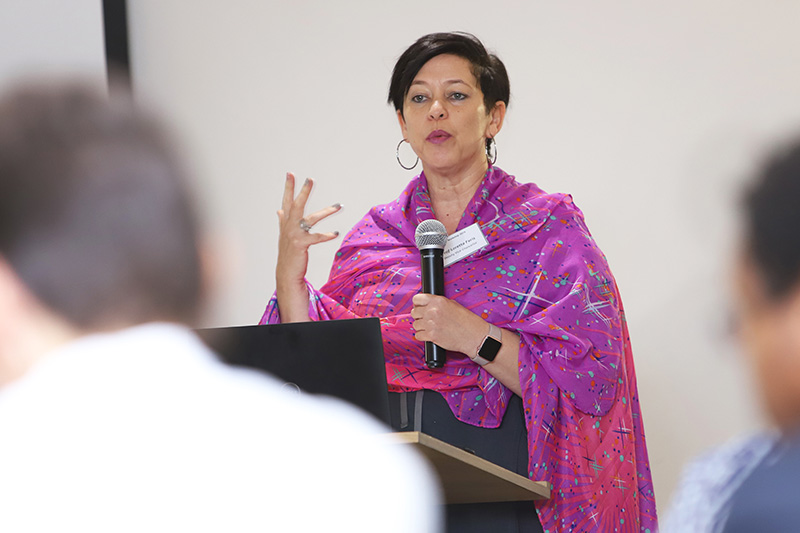
There were also several report-back sessions, the first of which was on institutional culture, presented by Feris. This was followed by Deputy Vice-Chancellor Professor Lis Lange’s feedback on narrowing the gap between academic and Professional, Administrative Support and Service (PASS) staff, and addressing inefficiencies within UCT’s administrative systems.
The Centre for Higher Education Development’s interim dean, Associate Professor Alan Cliff, also reported back on HoD development.
 This work is licensed under a Creative Commons Attribution-NoDerivatives 4.0 International License.
This work is licensed under a Creative Commons Attribution-NoDerivatives 4.0 International License.
Please view the republishing articles page for more information.
New Generation of Academics Programme (nGAP)
UCT has responded energetically to the New Generation of Academics Programme (nGAP), an opportunity provided by the Department of Higher Education (DHET) to build a new generation of black South African academics. The DHET’s 2015 vision document, “Staffing South Africa’s Universities Framework: A comprehensive, transformative approach to developing future generations of academics and building staff capacity”, proposes a suite of initiatives to address the challenge, with nGAP being the major instrument to increase the numbers of black South African academics.
The programme “involves the recruitment of highly capable scholars as new academics, against carefully designed and balanced equity considerations and in light of the disciplinary areas of greatest need”. The nGAP scholars are appointed into permanent positions where from the outset their conditions are customised to ensure their successful induction into the ranks of established academics.
The DHET provides funding over a six-year period to support the appointment of an nGAP lecturer, and their time is protected to provide the best possible opportunity for the completion of a doctorate degree in the shortest possible time. Once the degree is completed, the nGAP lecturer’s teaching commitments are steadily increased until they shoulder a full teaching load.
Since the first advertisement for nGAP posts in 2015, UCT has been awarded 17 nGAP positions: 5 (Phase 1), 4 (Phase 2), 3 (Phase 3) and 5 (Phase 4). These are distributed across all faculties.
UCT’s nGAP scholars operate as a single cohort, managed and coordinated by Dr Robert Morrell. Lecturers meet for quarterly meetings, writing retreats and various capacity-building activities all designed to support the completion of postgraduate qualifications (particularly doctorates) and to develop records of achievement that will testify to their emergence as self-standing, excellent academics. Each lecturer is mentored by a senior scholar, who provides support and guidance on the challenges that routinely face academics.
The nGAP manager sets great store in building the cohesion of the cohort and encouraging the establishment of new UCT networks while producing a collaborative, mutually supportive and embracing work culture.
According to Dr Morrell, “This group of academics will lead UCT in 15 to 20 years’ time ... Their vision of excellence, of being African and South African, of serving a wider community and producing knowledge for the planet, the continent and the country, will power UCT in years to come.”
Newsletters
In the news




